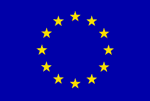


International Conference
"Small Firms Strategy for Innovation and Regional Problems"
Algarve, Portugal, 4 and 5 December
 |
|
International Conference "Small Firms Strategy for Innovation and Regional Problems" Algarve, Portugal, 4 and 5 December |
Background
There are many reasons to justify that an asymmetric use of different potentials leads to contrasting growth capabilities, generating situations of circulus viciosus in the development track that are very difficult to surmount. Particularly, the local development in rural areas of less favoured regions is mostly determined by the behaviour of small and medium firms. In those cases the essential industrial investment is a major constrain. Considering the importance of possible multiplicative effects, such funds should have origin in the region itself. Even knowing that all the industrial activities are able to accept permanent modernisation processes, there are new segments in the industrial activity that may produce lower investment risks than many traditional ones. However, if for a long time investments were considered as driving forces for technological acquisition and change, today's most recent studies demonstrate the complexity behind the concept of technological change, appointing the importance of new equipment’s use as a major factor of the learning procedure. Capability to learn, before and after the use of new technological support, is related to the internal and external dimension of firms. So, the very important inputs of the technological change within those enterprises are the knowledge base and the learning processes that they have built or have at their disposal. In this context we introduce the discussion on innovative activities and employment in small firms and their regional environments.
Goals
This conference is putting together three major European Projects and is opening the related discussions to the scientific community.
The co-ordinators of these three projects shall expose the major objectives and final results of the work developed within the framework of the different teams.
An enlarged reflection about learning, innovative activities in small firms, employment, leadership and behavioural patters, rural environments and structural change or strategies for deciders and policy makers is expected.
The IC will welcome theoretical or empirical contributions able to enlarge the discussion or critically review it. Therefore the IC foresees a space for selected papers and posters.
Related with the improvements of the INNOVALOC project and based on the experience related to the agro food sector the organisation encourages the presentation of papers related to this sector.
All the accepted papers shall be published in a book to be ready in 2004. The final article for this book shall have to compromise the recommendations of a scientific committee. The book shall be written in English, published in Portugal and distributed in Europe.
Scientific Committee
Peter Nijkamp, Free University of Amesterdam, the Netherlands
Bjørn Ascheim, Centre for Technology, Innovation and Culture, University of Oslo, Norway.
Manuel Heitor, Instituto Superior Tecnico, Portugal
Roberto Fanfani, University of Bologna, Italy
Lois Labrianidis, University of Macedonia, Greece
Teresa de Noronha Vaz, University of Algarve, Portugal
Jean Louis Rastoin, ENSA Montpellier, France
Manuel Heitor, Instituto Superior Tecnico, Portugal
Carlos Noeme, Instituto Superior de Agronomia, Portugal
Organising Secreteriat
Marisa Cesario and Silvia
Neves,
University of Algarve,
Faculty of Economics,
Campus de Gambelas, 8000 Faro Portugal
Fax and Tel: 289815949
Email: geemaa@ualg.pt
Web-site: //www.innovaloc.com.sapo.pt
Speakers
Andre
Rodriguez-Pose, London School of Economics, UK
Peter Nijkamp, Free University of Amsterdam, the Netherlands
Bjorn Asheim, University of Lund, Sweden and University of Oslo, Norway
Nikos Kastrinos, DG Research, European Commission
Dimitri Corpaki, DG Research, European Commission
Helen Lawton Smith, University of Oxford, UK
David North, Middlesex University, UK
Roberto Fanfani, University of Bologna, Italy
Lois Labrianidis, University of Macedonia, Greece
Jean Louis Rastoin, ENSA Montpellier, France
Jacques Viaene, University of Ghent, Belgium
Manuel Heitor, Instituto Superior Tecnico, Portugal
Joao Ferrao, Classical University of Lisbon, Portugal
Teresa de Noronha Vaz, University of Algarve, Portugal
Program:
Click here to download the Conference Program (.doc file, 368KB)
Participation Fee and other costs:
The participation fee for the IC is 300 Euros. The fee includes registration, abstracts and proceedings, coffee breaks and lunch meals, conference dinner. It is possible that some dinners may be sponsored. The hotel costs are to be supported by each participant and may present a variation between 40 and 75 Euros.
Reductions: due to the special interest that this meeting has for EFORD partners, a reduction in the inscription fee of 50% is foreseen. Of course INNOVALOC partners do not pay for the inscription.
Location:
The Conference shall take place in the recently grounded University of Algarve located in Faro the capital of Algarve. This tourist region known all over the world for its mild climate and beautiful surroundings is very appealing for the organisation of conferences and summer schools. The University with a beautiful Campus provides all the necessary conditions for simultaneous seminars and a calm work-environment.
Call for papers and Dates:
Participants who would like to present a paper are invited to submit a one page abstract (times new roman, font 12) by 15th July 2003. Accepted papers shall be notified by 1st September and the final documents should be submitted by 15th November. The used language is English.
Information:
For further information on the IC and accommodation please contact geemaa@ualg.pt or fax: 00351 289 815949.
Registration:
For registration please fill in the relevant form (which can be downloaded by clicking here-.doc file, 32KB) and send back to geemaa@ualg.pt . The deadline for registration is 15th November 2003.
* This Conference has been financed by the European Project INNOVALOC HPSE-CT-1999-00024.